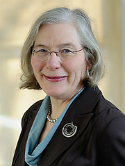| Abstract: |
Since colorectal adenomas are very probably the precursors of colorectal cancer, their detection and removal should result in a decrease in the incidence and mortality from colorectal cancer. Individuals who harbour an adenoma have a 30-50% probability of having additional adenomas at that time, and a 30% probability of having additional adenomas later. Adenomas are prevalent in countries where colorectal cancer is prevalent, about two-thirds of them being tubular and the rest tubulovillous or villous. The initial management of patients with an adenoma consists in searching by colonoscopy the entire colon and removing all additional polyps. Surgical resection is required wherever there is invasive cancer with adverse histological factors. Follow-up in most patients can be after 2-4 years, earlier follow-up being reserved for patients with numerous polyps or with a polyp that had been removed piecemeal. The results of ongoing trials should provide firm guidelines for follow-up and could also be used in mathematical modelling to examine alternative strategies and to help understand the evolving patterns of appearance of new polyps. Finally, a deeper understanding of the biology and inherited and acquired genetics will help identify individuals at risk for adenomas initially and at follow-up. Nutritional factors may also provide a basis for prevention of adenomas in high-risk countries. Many of these issues are being addressed in current research. |
















